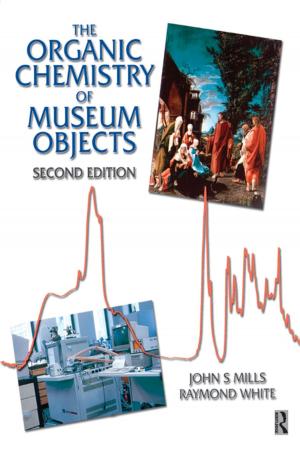Japan's Postwar Economic Recovery and Anglo-Japanese Relations, 1948-1962
Nonfiction, Social & Cultural Studies, Social Science, Cultural Studies, Ethnic Studies, Political Science| Author: | Noriko Yokoi | ISBN: | 9781134432424 |
| Publisher: | Taylor and Francis | Publication: | March 1, 2004 |
| Imprint: | Routledge | Language: | English |
| Author: | Noriko Yokoi |
| ISBN: | 9781134432424 |
| Publisher: | Taylor and Francis |
| Publication: | March 1, 2004 |
| Imprint: | Routledge |
| Language: | English |
Ever since Japan's economy recovered in the 1960s, scholars have been searching for the reasons for its meteoric postwar success. Until now, much research has been based on the study of Japan's society, its political and economic infrastructure, and its particular model of capitalism. But now that American and British government documents from the 1950s have been released, it emerges that the United States - as part of its Cold War economic and military strategy in East Asia - played a large part in assisting Japan out of its economic difficulties, whereas Britain's role seems to have been more ambivalent and circumspect. This book sets out to rectify the lack of full research into Anglo-Japanese trade relations from the late 1940s up to the early 1960s, and to examine the impact of cultural differences and perceptions on diplomacy, as well as the influence of prevailing political considerations like the Cold War. This book highlights the ebbs and flows in bilateral relations as Japan increased its economic and financial presence in Southeast Asia and Britain retreated politically and economically from its Empire in the East.
Ever since Japan's economy recovered in the 1960s, scholars have been searching for the reasons for its meteoric postwar success. Until now, much research has been based on the study of Japan's society, its political and economic infrastructure, and its particular model of capitalism. But now that American and British government documents from the 1950s have been released, it emerges that the United States - as part of its Cold War economic and military strategy in East Asia - played a large part in assisting Japan out of its economic difficulties, whereas Britain's role seems to have been more ambivalent and circumspect. This book sets out to rectify the lack of full research into Anglo-Japanese trade relations from the late 1940s up to the early 1960s, and to examine the impact of cultural differences and perceptions on diplomacy, as well as the influence of prevailing political considerations like the Cold War. This book highlights the ebbs and flows in bilateral relations as Japan increased its economic and financial presence in Southeast Asia and Britain retreated politically and economically from its Empire in the East.















